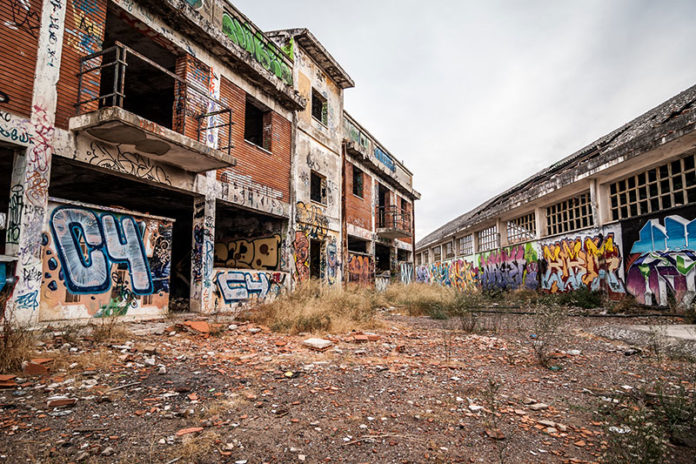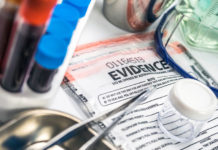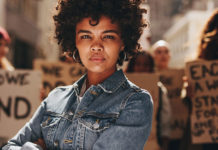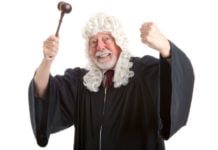Baltimore is America’s deadliest big city.
And now, studies are showing one possible reason why.
After the death of Freddie Gray and the riots that event set off, Baltimore cops stopped policing. In fact, they essentially acted as if they couldn’t see criminals at all.
Cops reported seeing fewer dealers on the streets. They ran into fewer people who had warrants out.
They stopped pulling people over. They stopped questioning people on the streets.
Baltimore exploded with riots in early 2015 after Freddie Gray, a black man who was notorious for his constant run-ins with police, died from injuries he suffered in the back of a police van.
Advocates against police brutality, and even city prosecutors, claimed that Gray was given a “rough ride” by the black cop that drove him to the station for processing. A “rough ride” is when cops leave a passenger “accidentally” unsecured in the back of a van or a car and then intentionally take very sharp turns in order to toss him around and rough him up a little bit.
It’s a common policing tactic across the country, although it’s never acknowledged by cops.
In 2015, it probably killed Freddie Gray.
So after Gray’s death, the grieving citizens of Baltimore looted drugstores, burned cars, and brutalized one another in order to celebrate Gray’s life and process their deep anguish. Eventually Maryland had to mobilize the national guard to restore order.
Even ol’ Barry O had some harsh words for the peaceful, loving, God-fearing grievers who were just so heartbroken over the death of their beloved friend Freddie Gray. Obama called these lovely people “thugs”, and he was criticized harshly for it on social media by other well-educated and upstanding paragons of the community.
So, after Baltimore cops got a taste of their own medicine, they basically stopped doing their jobs.
Officer in just about every part of the city starting turning a blind eye to violations of all kinds. They still answered 911 calls. But the number of potential violations they reported seeing themselves dropped by nearly half. It’s stayed that way ever since.
After all, the proactive police work they’d been doing, the police work that killed Freddie Gray, had cost Baltimore millions of dollars in looted grocery stores and burnt cars.
But after cops stopped arresting people, crime shot up.
USA Today reports that a huge surge of shootings followed in the wake of the Gray riots. The sheer number of killings instantly made Baltimore the deadliest large city in the nation. Its murder rate reached an all-time high last year; 342 people were killed. That’s nearly one a day.
The number of shootings in some neighborhoods has gone up by more than 300%. One man was shot dead in the street literally steps from a police station. What’s happening in Baltimore offers us a look at the possible worst-case-scenario outcome of the (pretty in-arguably necessary) national reckoning over police misconduct against black people.
Have cops, for basically decades, disproportionately punished black people for crimes white people basically get a pass for?
I think it’s hard to answer that question any way but “yeah.”
Does that mean that police presence in black communities is totally unnecessary, or that cops should turn a blind eye when they encounter evidence of crimes committed by minorities? Obviously not.
But it’s a very fine line that American cops will have to walk, between making up for a legacy of going a lot harder on black people than on people of other races, and ensuring that they’re still working to enforce the law and keep the peace in communities that consistently claim they don’t want the cops around.
And on the other hand, there’s a fine line that African-Americans will have to walk too, between demanding that their civil rights be respected and their communities be treated the same way white communities are, and demonizing the people who, at the end of the day, are responsible for tracking down those members of their communities who present a real threat of disruptive violence.
There are two ways that cops learn about and endeavor to stop crimes. Either they respond to a crime report (usually a 911 call), or they personally witness a crime in progress and engage to stop it.
In Baltimore, after Freddie Gray’s death and the riots that followed, cops basically stopped doing that second kind of policing. They stopped pulling people over, they stopped taking dealers and gunmen off the streets, they stopped patrolling.
Some of that was probably just because they were short on patrol officers.
But some was also probably because Baltimore cops knew their city saw them as racist assholes, and none of them wanted to be the next cop on trial for mishandling a run-of-the mill arrest.
And Baltimore is still bleeding because of it.






























